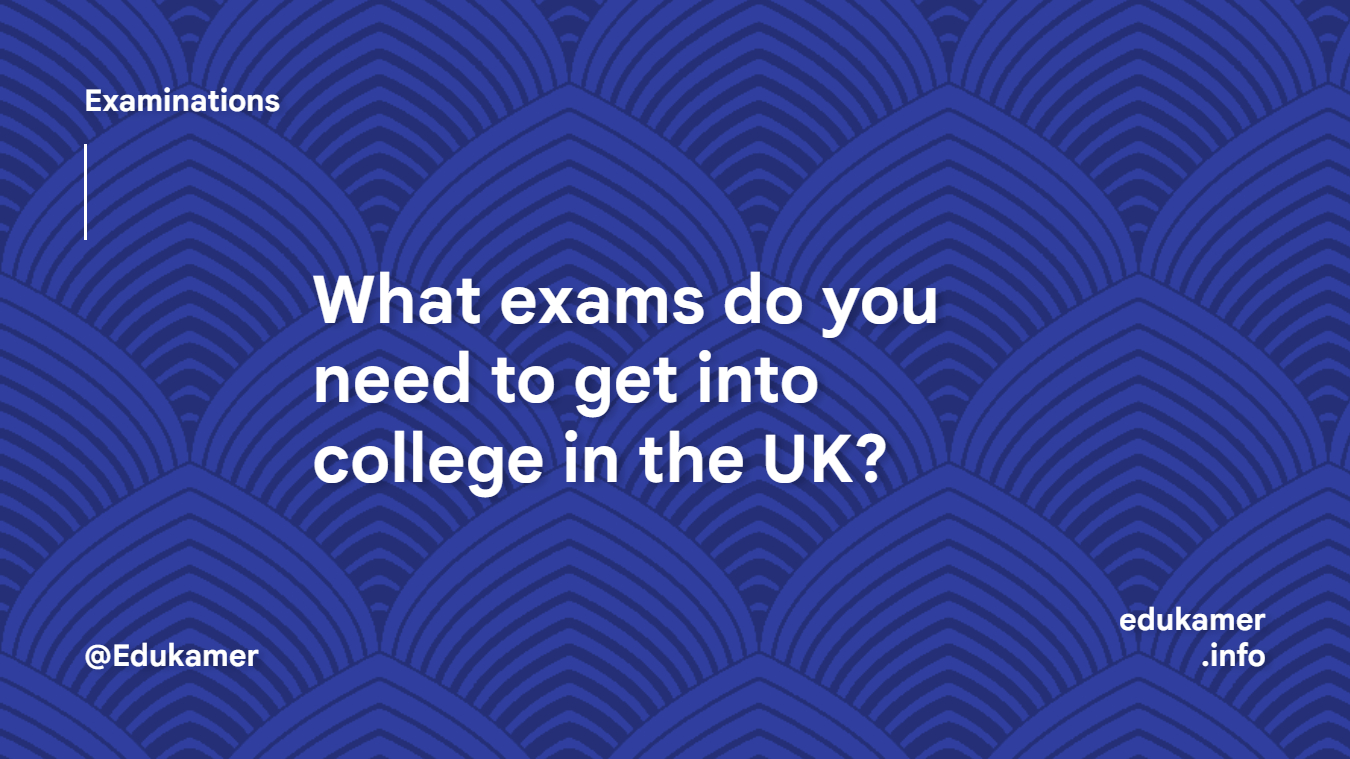What exams do you need to get into college in the UK? In the UK, the exams you need to get into college depend on your academic background, the program you are applying for, and the institution you want to attend. Generally, there are two types of exams that students take in the UK to enter college:
- A-levels: A-levels are the standard qualifications taken by students in the UK at the end of their secondary education. These are subject-specific exams that cover two years of study and are assessed by exams at the end of the second year. Most universities require students to have a minimum of three A-levels, with some programs requiring specific A-level subjects.
- International Baccalaureate (IB): The IB program is an internationally recognized qualification that provides students with a broad range of subjects. It is offered in many schools across the UK and is an alternative to A-levels. IB students take exams at the end of the two-year program, and their results are converted into a score out of 45 points.
Additionally, some universities may also accept other qualifications, such as Scottish Highers or BTECs. It is essential to check the entry requirements of the institution you want to apply to before making your application.
A-levels Exams in the UK
A-levels are subject-specific exams taken by students in the UK at the end of their secondary education. The exams cover two years of study and are assessed by exams at the end of the second year. A-levels are widely recognized by universities and employers in the UK and are an important factor in determining a student’s future academic and career prospects.
In order to take A-levels, students typically need to have completed their GCSEs (General Certificate of Secondary Education) and achieved at least a grade C in English and Maths. A-levels are usually taken by students aged 16-19, and students typically take three or four A-level subjects.
There are many A-level subjects available to study in the UK, including traditional subjects like English, Maths, and Sciences, as well as more specialized subjects like Art, Drama, and Psychology. Each A-level subject is assessed through a series of exams, which are usually taken in May or June of the second year of study.
The grades awarded for A-levels range from A* (the highest) to E (the lowest). The grades achieved in A-levels are used by universities to determine whether or not to make an offer of a place to study a particular course, and the grades achieved can also impact a student’s future career prospects.
International Baccalaureate (IB)
The International Baccalaureate (IB) is an internationally recognized qualification that provides students with a broad range of subjects and skills. It is offered in many schools across the UK and is an alternative to A-levels.
The IB program is a two-year program that covers six subjects, including Language and Literature, Language Acquisition, Individuals and Societies, Sciences, Mathematics, and the Arts. Students also complete an extended essay, a theory of knowledge course, and a creativity, activity, and service project.
The IB program is designed to develop critical thinking, communication, and research skills, and is highly valued by universities and employers around the world. IB students take exams at the end of the two-year program, and their results are converted into a score out of 45 points.
The grades awarded for IB subjects range from 1 (the lowest) to 7 (the highest). In addition to the subject grades, students are also awarded up to three points for their extended essay and theory of knowledge course. The maximum total score that can be achieved is 45 points.
Like A-levels, the grades achieved in the IB program are used by universities to determine whether or not to make an offer of a place to study a particular course. The IB program is highly regarded by many universities around the world, and many universities in the UK offer lower conditional offers for students who achieve high IB scores.
Scottish Highers and BTECs
Scottish Highers and BTECs are also alternative qualifications to A-levels that are recognized by universities in the UK.
Scottish Highers are a set of subject-specific exams taken by students in Scotland at the end of their secondary education. They are similar to A-levels but are typically taken over one year instead of two. To enter university, students typically need to achieve at least five Highers, including English and Maths.
BTECs (Business and Technology Education Council) are vocational qualifications that provide students with practical skills and knowledge in a specific area of study. They are offered at different levels, ranging from Level 1 (equivalent to GCSEs) to Level 7 (equivalent to Master’s degrees). BTECs are typically assessed through coursework and are designed to prepare students for employment in a particular industry.
While Scottish Highers and BTECs are not as widely recognized as A-levels or the IB, they are still recognized by many universities in the UK. The entry requirements for each university and course may vary, so it is important for students to check the specific requirements for the universities and courses they are interested in.





